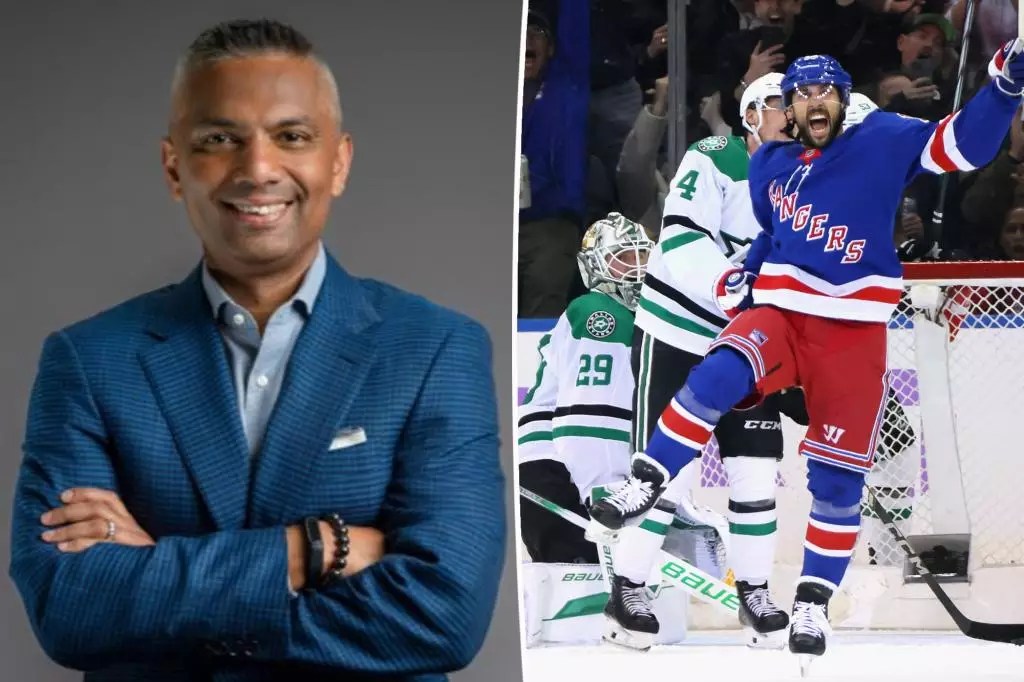The atmosphere at Madison Square Garden is typically vibrant, filled with cheers, anticipation, and, more often than not, the aroma of game-time snacks like hot dogs. However, an unusual sight caught the attention of sports enthusiasts during a recent New York Rangers game: Dennis Mathew, the CEO of Altice, the parent company of Optimum. His presence was striking, primarily because Altice has been embroiled in a contentious dispute with Madison Square Garden (MSG), which resulted in Optimum subscribers being deprived of live Rangers games since January 1. Yet, there was Mathew, seemingly unbothered by the ongoing conflict, enjoying a hot dog and rooting for the Rangers against the Dallas Stars.
The dispute between Altice and MSG is rooted in financial disagreements regarding carriage fees, the payments cable providers make to carry networks. Currently, Optimum pays around $10 per subscriber for the right to broadcast Knicks and Rangers games on the MSG Network. Altice seeks to renegotiate this figure. The situation exacerbates the frustration amongst fans, particularly those loyal to the Rangers, as a significant portion of New Yorkers, approximately one-third, typically rely on Optimum for viewing. The stakes run high, as the lack of game broadcasts not only affects viewership but also disenchants fans who feel they are caught in corporate squabbles.
Following Mathew’s appearance at the game, Altice issued a statement asserting that the CEO’s attendance was part of a pre-planned business meeting with clients, attempting to frame his presence in a more professional light. This PR strategy inferred a level of normality and ongoing relationship between the two companies. However, the optics of a top executive cheering for a team while simultaneously denying access to its games raised questions about sincerity and corporate accountability. Fans, many of whom are Optimum customers, are left to wonder about their interests amidst these high-stakes negotiations.
The back-and-forth between these corporate giants hinges on accusations of price gouging. Altice argues that the deal proposed by MSG would force customers who do not wish to pay for extra viewing content to incur charges. Conversely, MSG’s proposition seems to mirror classic negotiation tactics where both sides inflate their asks to eventually settle at a more mutually palatable price. Regardless of the underlying intentions, the outcome places undue pressure on local consumers and carries an adverse effect on game-day experiences. Fans are caught between corporate negotiations that appear all too dispassionate.
This situation reflects a larger trend within the sports broadcasting landscape, where corporate struggles frequently disrupt fan experiences. As these disputes become more commonplace, they call into question the relationship between sports networks and their viewers. Fans are increasingly viewing themselves as victims of corporate decisions that directly affect their ability to support their favorite teams. While business interests are paramount for cable providers and networks, the emotional connections fans have to their teams embody a critical segment of this narrative. As negotiations continue, the hope remains that the interests of devoted sports fans will ultimately prevail, leading to a resolution that restores the thrill of live game-day experiences.


Leave a Reply